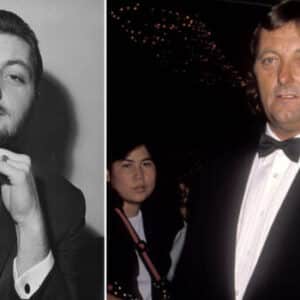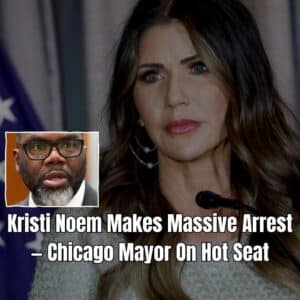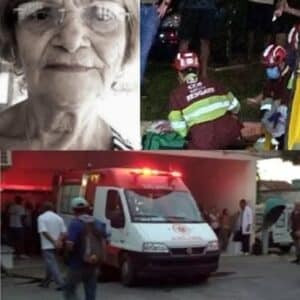The morning I found the baby split my life clean in two. I was trudging home after another pre-dawn shift, mind fixed on warming my hands around a bottle and maybe stealing twenty minutes of sleep, when a thin, frayed cry threaded through traffic and tugged me off course.
I almost kept walking. New motherhood does that to your brain—you hear phantom cries everywhere. But this sound sharpened, bright and frightened, and pulled me toward the bus stop.
At first it looked like a forgotten bundle of laundry on the bench. Then the blanket twitched, and a fist no larger than a plum waved at the cold. He couldn’t have been more than a few days old—face red from wailing, lips quivering, skin icy beneath my fingers. The street was empty, the windows all dark.
“Hello?” I called, voice catching. “Is someone here? Whose baby is this?”
Only the wind answered.
Instinct took over. I tucked him against my chest, wrapped my scarf around his tiny head, and ran. By the time I fumbled my key into the lock, his cries had thinned to ragged hiccups.
Ruth—my mother-in-law, the only reason I could work four hours before sunrise—looked up from stirring oatmeal and went white. “Miranda!”
“There was a baby on the bench,” I panted. “Just… left.”
She touched his cheek, eyes softening. “Feed him. Now.”
I did. My body ached from the night before, but as he latched, a hush fell over the room and something in me shifted. His little hand clenched my shirt; his breathing steadied; mine did too. When he finally slept, swaddled in one of my son’s blankets, Ruth rested a hand on my shoulder.
“He’s beautiful,” she whispered. “But we have to call.”
I knew. I dialed with trembling fingers, answered questions, packed a bag of diapers and milk. The officer who came was kind. “You did the right thing,” he said, lifting the baby gently. When the door closed, I sat with one tiny sock in my fist and cried into Ruth’s cardigan until the fabric was damp.
The day slid by in a fog of bottles and laundry and grief I couldn’t name. Four months earlier I’d given birth to my own son—named for his father, who’d wanted nothing more than to hold him. Cancer took him when I was five months along. I’d cried when the doctor said, “It’s a boy,” because it was everything he’d dreamed of and never saw. Since then, life had been feedings and pumping and three hours of sleep stitched together with prayer. The baby on the bench cracked something open I didn’t know I’d sealed shut.
That evening, as I rocked my son, my phone buzzed with an unknown number. “Is this Miranda?” a steady, rough voice asked. “This is about the baby you found. We need to meet. Four o’clock. Write down this address.”
I did—and froze. It was the same building where I scrubbed coffee from conference tables and emptied bins before the sun woke.
“Who is this?” I asked.
“Just come. You’ll understand.”
“Be careful,” Ruth warned when I told her. “Don’t go alone if it feels wrong.”
By four, I was in the marble lobby, security eyeing my thrift-store coat before calling upstairs. “Top floor,” he said. “He’s expecting you.”
The elevator sighed me into an office so quiet even the air seemed expensive. A silver-haired man rose behind a desk the size of my couch. He didn’t bark orders; his voice wavered. “Sit,” he said gently.
“That baby,” he began, swallowing, “is my grandson.”
The room tilted. “Your… grandson?”
“My son left his wife two months ago,” he said, choosing the truth over polish. “We tried to help. She shut us out. Yesterday she left a note—said if we wanted the baby so badly, we could find him. She left him on a bench.” He covered his face with one hand. “If you hadn’t walked by…”
He came around the desk and knelt—this man who probably never kneels for anyone. “You gave me back my family. I don’t know how to thank you.”
“I just did what I hope someone would do for mine,” I said, my voice small.
He shook his head. “Not everyone stops. Most people keep walking.”
I didn’t understand what he meant until weeks later, when HR called me in for “a new opportunity.” The CEO met me in a conference room that usually smelled of cologne and dry-erase markers. “You shouldn’t be cleaning floors,” he said plainly. “You understand people. Let me help you build something better for you and your son.”
Pride tangled with fear in my throat. Then I heard Ruth’s voice at home, steady and warm: “Sometimes God sends help through doors we don’t expect. Don’t close this one.”
So I said yes.
I studied HR courses online at the kitchen table while my son dozed in his bouncer, while the kettle clicked off at midnight, while exhaustion pressed gravel into my eyelids. I cried sometimes. I almost quit sometimes. Then my boy would grin with milk on his chin, and I kept going.
When I finished my certification, the company moved us into a sunny, clean apartment through their housing program. And together with a small team, I helped design a “family corner” just off the lobby—soft rugs, bright murals, shelves of toys. A place where parents could work without choosing between paychecks and childcare.
The CEO’s grandson toddled in soon after, his unsteady steps aimed straight for my boy. They’d wobble toward each other, collapse in giggles, swap crackers with the solemn generosity of kings. Watching them through the glass felt like seeing a door I hadn’t known existed thrown wide.
One afternoon, the CEO stood beside me, gaze on the boys. “You gave me back my grandson,” he said. “But you gave me something else—a reminder that kindness still exists.”
“You gave me one too,” I said. “A second chance.”
Sometimes I think about that bench and how easily I could’ve missed it. How a cry in the cold rerouted not just one life, but three, then ten, then a whole floor’s worth of families who now drop their little ones at the “family corner” before heading into meetings. I still clean a spill sometimes. I still carry a diaper bag. I still miss my husband with a bone-deep ache. But the path in front of me is brighter than it was.
Saving that child didn’t just alter his fate. It rewrote mine. And it keeps writing, every morning, with small hands pressed against the glass and two boys who might never remember the beginning—but who carry its goodness forward all the same.





